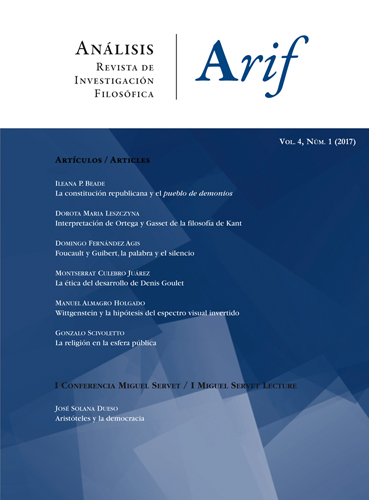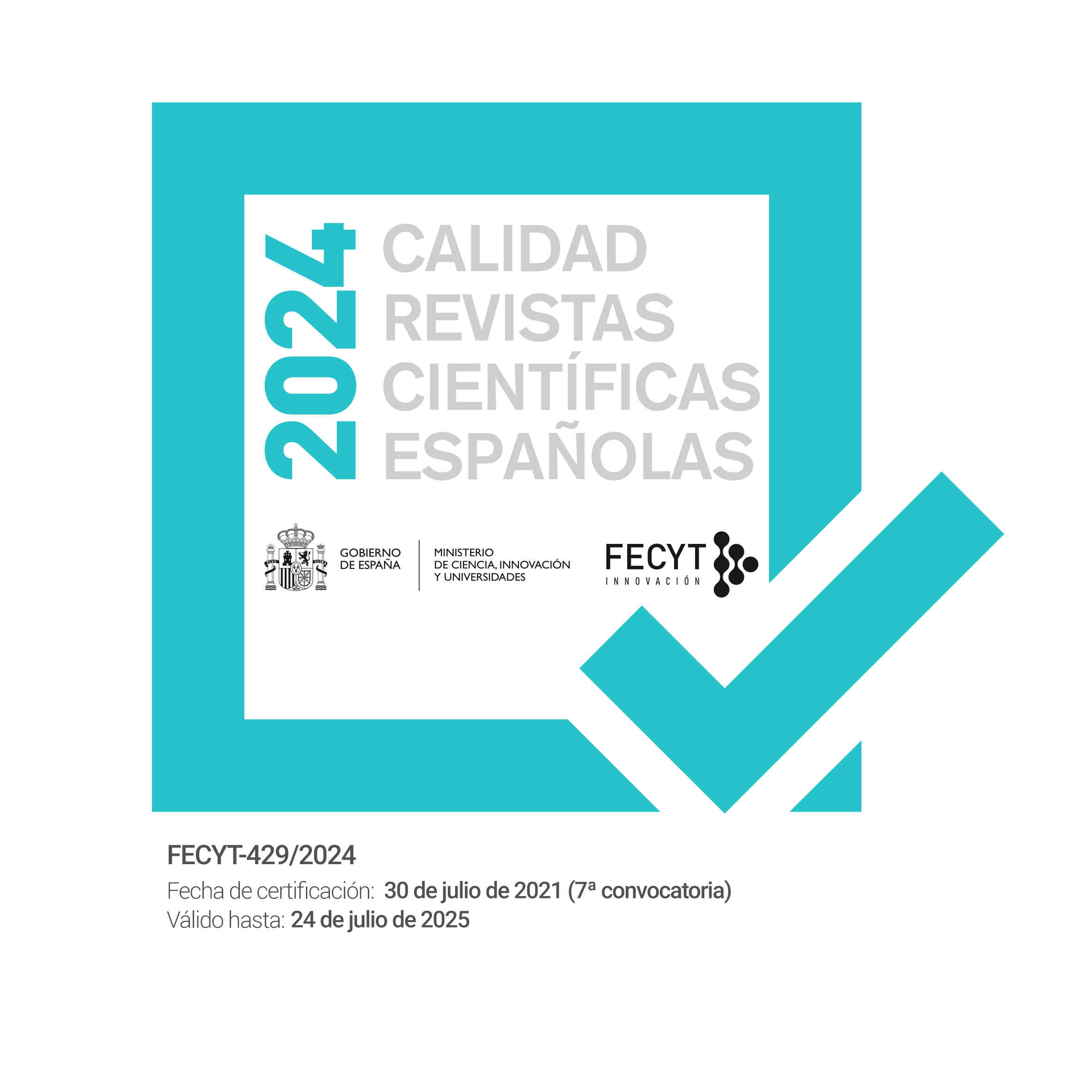Wittgenstein y la hipótesis del espectro visual invertido
DOI:
https://doi.org/10.26754/ojs_arif/a.rif.201711219Abstract
Un caso de inversión peligrosa del espectro visual es aquél en el que dos personas tienen impresiones visuales distintas cuando ven el mismo objeto y sin embargo coinciden al afirmar que el objeto es, por ejemplo, rojo. De acuerdo con Ned Block, si los casos de inversión del espectro visual son concebibles, entonces puede construirse un argumento a favor de la existencia de los qualia: si dos sujetos tienen distintas impresiones visuales, entonces deben estar diciendo cosas distintas cuando profieren "esto es rojo" al describir su modo de ver el mismo objeto. Según Block, Wittgenstein se comprometió con la posibilidad de un tipo de inversión del espectro visual que permite defender la existencia de los qualia y, sin embargo, Wittgenstein parece oponerse a la idea de los qualia, luego hay una incoherencia en su pensamiento. Nuestra tesis en este trabajo es que el argumento de Block no es un problema para la posición de Wittgenstein con respecto al significado de los términos relativos a la percepción y que tal incoherencia en su pensamiento es solo aparente.
TITLE: Wittgenstein and the Inverted Spectrum Hypothesis
ABSTRACT
A case of dangerous inverted spectrum is that one in which two subjects have different impressions when they see the same object and both claim, for example, that the object is red. According to Ned Block, if cases of dangerous inverted spectrum are conceivable, then we can offer an argument in favour of existence of qualia: two subjects with inverted spectrum don’t mean the same when they utter that the object is red. According to Block, Wittgenstein accepted the possibility of a kind of case of inverted spectrum that allows to defend the existence of qualia, and nevertheless Wittgenstein seems to be opposed to the idea of qualia. There is thus, it seems, an incoherence in the Wittgensteinian thought. Our thesis in this paper is that Wittgensteinian’ discussion about the inverted spectrum hypothesis is a particular discussion about the grammar of perceptual terms that pretends to show the irrelevance of our sensations in determining the meaning of perceptual terms. From this interpretation, the discussion of a case of inverted spectrum does not mean the commitment with the possibility of that case, and then such incoherence on Wittgenstein’ thought is only apparent.
Downloads
Downloads
Published
How to Cite
Issue
Section
License
Los autores que publican en esta revista están de acuerdo con los siguientes términos: los autores conservan los derechos de autor y garantizan a la revista el derecho de ser la primera publicación del trabajo al igual que licenciado bajo una Creative Commons Reconocimiento-No Comercial-Sin Obra Derivada 4.0 (CC BY-NC-ND) que permite a otros compartir el trabajo con un reconocimiento de la autoría del trabajo y la publicación inicial en esta revista. Los autores pueden establecer por separado acuerdos adicionales para la distribución no exclusiva de la versión de la obra publicada en la revista (por ejemplo, situarlo en un repositorio institucional o publicarlo en un libro), con un reconocimiento de su publicación inicial en esta revista.






